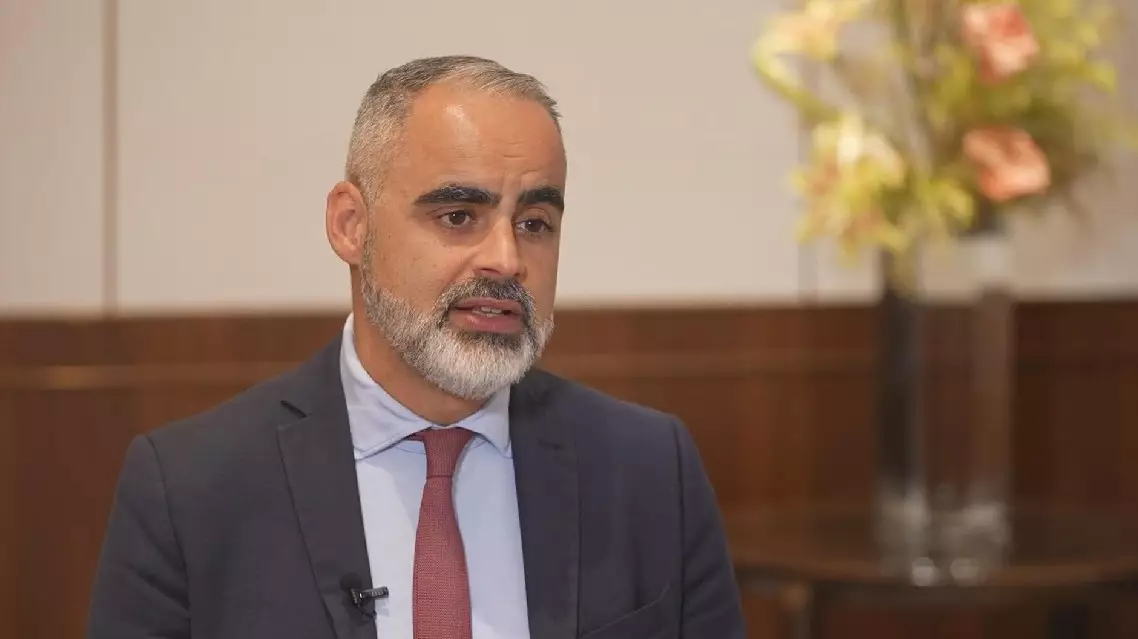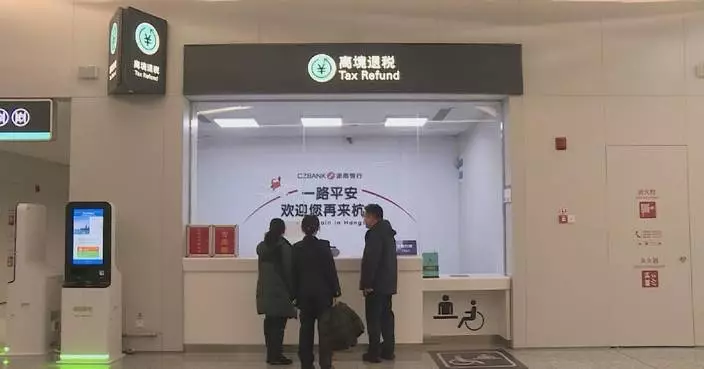The European tourism industry will pay more attention to providing Chinese tourists with more detailed travel services as independent travel becomes increasingly popular among Chinese people, and is looking forward to promoting the development of bilateral relations through tourism exchanges, said Eduardo Santander, vice chair of the World Tourism Alliance (WTA).
Europe is one of the most popular long-haul destinations for Chinese travelers. With global tourism booming, the number of Chinese visitors to Europe is expected to recover to pre-pandemic levels by 2025.
In a recent interview with the the China Global Television Network (CGTN) on the sidelines of the 2024 WTA Xianghu Dialogue in Sanya City of South China's Hainan Province, Santander shared his views on new initiatives and policies that are shaping the way Chinese travelers explore Europe.
Santander, also the CEO of the European Travel Commission (ETC), an association of National Tourism Organisations (NTOs) created in 1948 to promote Europe as a tourism destination, said that the European tourism industry will focus more on "independent travelers", and will introduce a series of customized service to facilitate Chinese tourists.
"Since 2018 when we celebrated the EU-China Tourism Year, we've been extremely focusing on China as a reliable partner. We have now decided to focus very much on the individual traveler. As we understand, the Chinese mentality has changed and evolved during the pandemic. So our new strategy has to do with individualized product offer, also trying to penetrate Chinese market in a way that hasn't been done before, with a lot of attention on detail and a lot of attention on needs of Chinese travelers, whether it's mandarin speaking guides, whether it's like good connectivity for cell phones, hot water in rooms, having Chinese speaking personnel, or other things that matter a lot for Chinese travelers," said Santander.
Established in China in 2017, the WTA is committed to promoting tourism for peace, development, poverty alleviation, and driving global tourism exchanges and cooperation at a non-governmental level.
In July 2024, the organization launched the "China-EU Tourism Dialogue" in Budapest, Hungary, aiming to further promote civil exchanges and cooperation in the tourism industry and make China-EU tourism more dynamic.
Santander highlighted the significance of this dialogue in strengthening the two sides' consensus on expanding tourism cooperation, saying that the most important issue at present is to restore transport links disrupted by the epidemic.
"The key aspect of the conference was to recognize the importance of both Europe and China as very reliable partners when it comes to tourism exchange. Tourism meant to be a form of soft diplomacy of people-to-people dialogue. When people travel between China and Europe, they discover more on how many things we have in common, rather than how many differences we have between ourselves. But challenge is accessibility or connectivity. We need more direct connections between Europe to China and China to Europe. Before the pandemic, we have plenty of them, there was an expansion of connectivity. Now we need to recover that connectivity to be able to bring not only people from tier-one, tier-two cities in Europe and China, but also from tier-two and tier-three," he said.
As China has been expanding visa-free scheme to boost tourism, citizens from 12 European countries have been granted visa waivers for the Asian nation since the end of 2023.
Noting that the visa-free policies are expected to further contribute to promoting tourism exchanges between China and Europe, Santander said he foresees more countries joining China's visa-free "circle of friends" or mutual visa exemption policies.
"We see that the Chinese government had put in place to create a visa-free program for many countries of the European Union. We see the consequences of that - people are more motivated now to come to China. We hope that more countries will be added to the list. At a certain point, there will be more visa liberalization from the sites of European destinations, also towards Chinese cities." he said.

Europe to further penetrate into Chinese tourism market: vice chair of WTA









